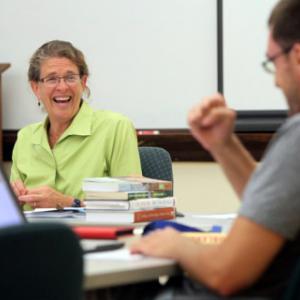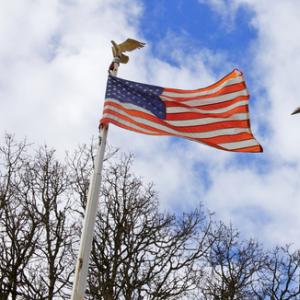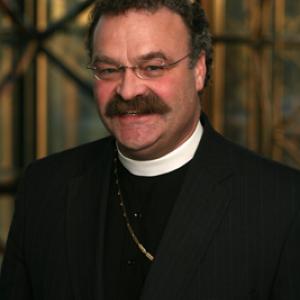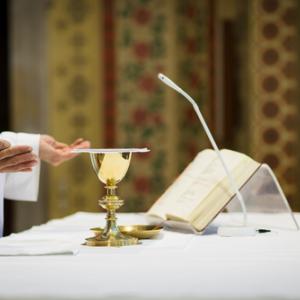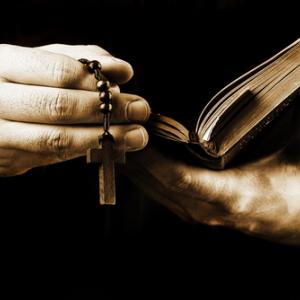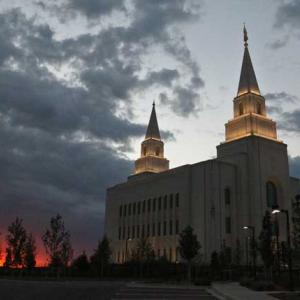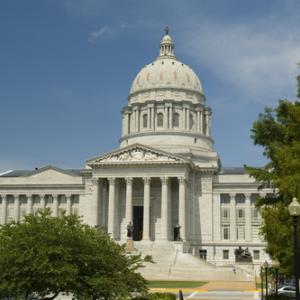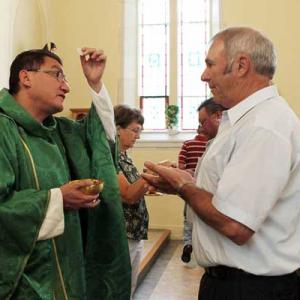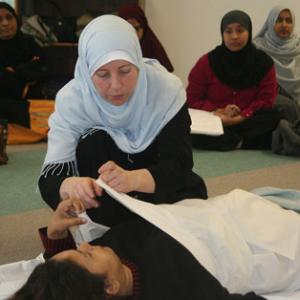Tim Townsend is religion writer for the St. Louis Post-Dispatch.
Posts By This Author
Navy Chaplains to Receive More Training on Sexual Abuse
ST. LOUIS — Kristen Leslie began her 2003 book, When Violence Is No Stranger, with a verse from Psalms, a nod to her training as a theologian.
“It is not enemies who taunt me — I could bear that; it is not adversaries who deal insolently with me — I could hide from them. But it is you, my equal, my companion, my familiar friend…”
The book’s subject was acquaintance rape, and it got the attention of a chaplain at the Air Force Academy. The school was then reeling from a Pentagon report indicating that 7 percent of its cadets reported being the victims of rape or attempted rape. Nearly 90 percent of the perpetrators were their own classmates.
Leslie, now a professor of pastoral theology and care at Eden Theological Seminary in Webster Groves, Mo., was invited to Colorado to consult with academy leaders on how to train Air Force chaplains to deal with sexualized violence on campus.
Now, a decade later, the U.S. Navy has come knocking.
Mother Searches for God’s Purpose in the Midst of Grief
Sarah Decareaux was lying on the cold, concrete floor of a barn.
She closed her eyes, curled her knees into her chest, and told herself that what was happening wasn’t real.
She felt claustrophobic. She was having trouble breathing. Her vision tunneled, the same way it had when she’d been in labor. She could see only a few feet in front of her.
Gay Catholic Priest Comes Out to an Uncertain Future
On the campus of the University of Missouri-St. Louis, the Rev. Gary Meier addressed a congregation of sorts — people who wanted to hear what the Roman Catholic priest had been thinking since, nearly a year ago, he last stood before a flock.
That was last June, when Meier told his parishioners at Saints Teresa and Bridget Church in north St. Louis that he would take a leave of absence “to discern what ministry God was calling me to do.”
Meier, 49, had told his archbishop that he could no longer teach the Catholic church’s stance on homosexuality.
“I have tried over the years to reconcile my silence as a gay priest with that of the Church’s increasingly anti-gay stance. I have been unsuccessful,” Meier writes in his book “Hidden Voices: Reflections of a Gay, Catholic Priest.”
Is Grief a Mental Illness? New Diagnostic Changes Say 'Maybe'
Each year 90,000 parents in the U.S. confront the profound suffering that follows the death of a child or adolescent.
Some of those rely on faith to help them through their grief. Others look to psychiatrists, who offer therapy or prescribe antidepressants to help ease their patients’ pain.
On Saturday, in a move that could add to the tension between religion and science, the American Psychiatric Association changed a controversial diagnosis regarding how grief relates to mental health.
The change “will affect every single person in the country, because at some point we’re all going to be bereaved,” said Joanne Cacciatore, founder of the Center for Loss and Trauma in Phoenix and a professor of social work at Arizona State University.
At issue are questions as fundamental as how long we grieve, what clinical label we assign to sadness, and when grief transforms into mental illness.
The modification also rekindles long-standing debates about whether spirituality or medicine offers the best pathway out of bereavement.
Catholics Try Their Hand at Old-Fashioned Evangelism
On a recent rainy Saturday, about 125 Catholics packed a basement conference room, many of them older, most of them lay people. Many were representing their parishes.
They gathered here to learn how to spread the faith, a concept that is both fundamental to Christianity and nearly foreign to modern Roman Catholics.
For the first hour of the conference, Kenneth Livengood, a parishioner at Holy Trinity Parish in St. Ann, Mo., detailed one way — door-to-door evangelization, a missionary strategy more familiar to Mormons or Jehovah’s Witnesses.
Tax or Fee? Pastors Push Back Against City’s ‘Annual Registration Fee’
At issue was a new $100 “annual registration fee” that the city imposed on churches and nonprofits. Most of the fee will go toward building safety and fire inspections, and $25 toward administration costs.
But East St. Louis pastors say Mayor Alvin Parks is playing a game of semantics, using the word “fee” where “tax” is more accurate.
They say they only learned about the new fee when they began receiving letters from the city, warning that the churches would be turned over to a collection agency if they didn’t pay. Nonpayment, the letter said, “may reflect negatively on your credit record, lien on property and other remedies that the State of Illinois allows.”
Those building new churches pay fees for licenses and permits, just like anyone else putting up a new structure. But churches and nonprofits don’t pay taxes.
Newtown ‘Debacle’ Reopens Old Wounds for Missouri Synod
ST. LOUIS — A decision by the leader of the Lutheran Church-Missouri Synod to censure a pastor for participating in a prayer service for victims of the Sandy Hook school massacre has reopened old wounds for an often politically divided denomination.
The Rev. Matthew Harrison asked the Rev. Rob Morris, pastor of Christ the King Lutheran Church in Newtown, Conn., to apologize for participating in a public interfaith vigil with President Obama two days after a gunman killed 20 children and six adults at the town’s elementary school.
Morris apologized and Harrison accepted, but the exchange sparked a media firestorm with charges that the 2.4 million-member denomination was intolerant, insensitive or both. On Sunday, Harrison said he made a bad situation even worse.
“As president of The Lutheran Church — Missouri Synod, I take responsibility for this debacle,” he said. “I handled it poorly, multiplying the challenges. I increased the pain of a hurting community.”
Catholic Priests Pushed to Become Better Preachers
ST. LOUIS -- As Drew Burkemper got up to preach, the weight of his task was evident. His classmate at Kenrick-Glennon Seminary, Adam Maus, had just pretty much killed it.
Like Burkemper, Maus and other Catholic seminarians were told to prepare and deliver to his class a homily for an imaginary event.
Maus’ scenario had been a wedding between a 42-year-old bride with four children and her groom, who had recently returned to the Catholic Church. The nine other seminarians in the room loved his approach, showering him in glowing feedback.
Burkemper was up next, faced with a preaching scenario that would challenge any 23-year-old priest-to-be. His homily was for a marriage between a Catholic man and a Jewish woman.
As he began, he worked hard on his delivery, as his professor had taught him. "Father Wester is big on delivering the homily,” Burkemper said later. “Not just reading it.”
The Rev. Don Wester, pastor of All Saints Catholic Church in St. Peters, Mo., is Kenrick’s lecturer of homiletics -- the art of preaching.
Vatican Lifts Suspension of Priest who Altered Prayers at Mass
An Illinois priest who was forced out of his parish by his bishop for improvising prayers during Mass has had his suspension reversed by the Vatican.
The Vatican decided in favor of the Rev. William Rowe on one of three counts, saying Bishop Edward Braxton of Belleville, Ill., had not followed the proper procedure.
The Vatican's reversal means he can celebrate Mass in another diocese, Rowe said, as long as he has the local bishop's approval. Others, however, disputed that interpretation of the decree.
In a letter that accompanied the document, Monsignor Antonio Neri, an undersecretary of the Vatican's Congregation for the Clergy, said Rowe could only return to celebrating Mass “when you shall have acknowledged your error and formally promise to dispose yourself to adhere to the rights and rubrics of the sacred liturgy set down by the lawful ecclesiastical authorities.”
The Vatican sided with the bishop on two counts: upholding his removal from the parish, and agreeing with the bishop's withdrawal of the priest's "faculties" — or his license to practice ministry under church law.
Missouri Remains Land of Religious Promise for Mormons
In 1831, Mormon founder Joseph Smith declared that the righteous would gather in Independence, Mo., to greet the Second Coming of Jesus Christ — just one of the prophecies that estranged his faith from traditional Christianity.
Thousands of converted Mormons moved from Ohio and upstate New York to claim their New Jerusalem. Disputes with Missourians led to a bloody Mormon War that ended only when the state's governor issued an "extermination order" to expel Smith's followers.
Today, few places are better to contemplate the evolving — but still uncertain — relationship between Mormonism and the country where it was founded.
On the one hand, Missouri symbolizes how far Mormons have come. At least 66,000 Mormons now live in the state, more than triple the number of just three decades ago. Most recently, the LDS church has built a temple in Kansas City, Mo., near the epicenter of the Mormon War.
But Missouri also serves to highlight the intractable differences between mainstream Christianity and Mormon theology.
Episcopal Priest Under Scrutiny for Nude Photos
In the middle of the 16th century, Catholic bishops and theologians met sporadically in the city of Trento in northern Italy to discuss the church's response to the Reformation. Over the course of 18 years, the Council of Trent produced documents correcting abuses like indulgences and other corruption.
In 1564, the council ordered that some naked figures in Michelangelo's massive "Last Judgment" fresco in the Sistine Chapel be covered up as a result of the council's dictate that "all lasciviousness be avoided; in such wise that figures shall not be painted or adorned with a beauty exciting to lust."
It will be difficult for critics to compare Michelangelo's nudes with the ones photographed by the Rev. John Blair. Just after the Episcopal Diocese of Missouri launched an investigation of the St. Louis priest, many of his photos of nude models were removed from the Internet.
And yet the diocese's disciplinary board, whose members will decide if Blair's photography constitutes sexual misconduct, will try to answer the same question as Trent's participants 450 years ago: How does the church recognize the beauty of art that depicts God's creation — the human form — without seeming to condone "a beauty exciting to lust"?
Baptist Leader Stands His Political Ground Amidst Akin Furor
ST. LOUIS — Don Hinkle stands out among the serious, conservative men of the Missouri Baptist Convention. Not that Hinkle isn't conservative or serious. He is both. But Hinkle prefers bow ties, which — along with his white, furry mustache and thatch of white hair — give him a sort of plump Mark Twain air.
Late last week, a church-state watchdog group in Washington filed a complaint with the Internal Revenue Service accusing Hinkle, who is also his organization's director of public policy, with violating federal tax law by intervening in two campaigns for public office.
Those were the Republican primary campaigns of U.S. Rep. Todd Akin for U.S. Senate, and Ed Martin for Missouri attorney general.
The 500,000-member Missouri Baptist Convention is the state arm of the Southern Baptist Convention, the largest Protestant denomination in the country, with about 16 million members.
In his column in the May edition of the Pathway, the state convention's newsjournal, Hinkle wrote that while he did not want an American theocracy, "when it comes to public policy, Southern Baptists must be motivated by love for our fellow citizens, believing that God's way is the best way."
For that reason, Hinkle continued, "I personally support candidates like U.S. Rep. Todd Akin, a Republican who wants to challenge Democrat Claire McCaskill for her U.S. Senate seat, and Republican Ed Martin, the St. Louis attorney who is running for state attorney general."
The Roots of Rep. Todd Akin’s “Legitimate” Rape Remarks
"From a scientific standpoint, what's legitimate and fair to say is that a woman who is raped has the same chances of getting pregnant as a woman who engaged in consensual intercourse during the same time in her menstrual cycle," said Dr. Barbara Levy, vice president for health policy at the American Congress of Obstetricians and Gynecologists.
One widely accepted study suggests a 5 percent pregnancy rate following rape, resulting in 32,000 pregnancies each year.
The report was from the Medical University of South Carolina and was published in the American Journal of Obstetrics and Gynecology and cited by the U.S. Centers for Disease Control and Prevention.
But placing an exact figure on post-rape pregnancy is problematic, primarily because rape is thought to be underreported. Another factor is the availability of over-the-counter emergency contraception, which can prevent fertilization when taken after intercourse.
One study from the journal Human Nature in 2003 suggests pregnancy rates are higher after a rape when compared with consensual sex because of the inconsistency of birth control use.
Missouri to Vote on Prayer Amendment as Critics Warn of Legal Nightmares
Missourians will vote on Tuesday on a proposed amendment to the state constitution that supporters say would protect residents' right to pray in public. If a recent poll is any indication, it could pass by a mammoth margin.
Supporters say the so-called "right to pray" ballot measure — known as Amendment 2 — better defines Missourians' First Amendment rights and will help to protect the state's Christians, about 80 percent of the population, who they say are under siege in the public square.
Opponents, meanwhile, say that the religious protections Amendment 2 would offer are already guaranteed by the Bill of Rights and the U.S. Constitution, and that it will open the door to all manner of unintended and costly consequences including endless taxpayer-funded lawsuits.
Should Judge Prevent Man from Attending Church?
MARINE, Ill. — Joseph Haegele remembers going to the church across the road from his grandparents' house on Windmill Street in this farm town in 1956, when he was 5 years old.
Haegele has attended other Catholic churches in the area. But St. Elizabeth's remains special to the former General Chemical employee and his wife, Lynn. The annual church picnic has been part of family tradition for decades. And after their 25-year-old son died of a brain tumor 15 years ago, Haegele said, the couple adopted a priest's flower garden behind St. Elizabeth's rectory as a memorial.
But a Madison County Circuit Judge Duane Bailey has ruled that Haegele can worship at St. Elizabeth's only on the last weekend of each month.
Legal experts say the judge's order illustrates the conflict between orders of protection and religious liberty. And prior cases have affirmed the rights of courts to issue restraining orders on individuals even if it affects their ability to attend a house of worship.
Bailey's order is extraordinary in that it imposes not only distances of separation, but specifically bars access to a church on particular days.
Fortnight for Freedom Kicks Off, But Who is Funding It?
On June 21, Catholics across the country will amplify what is an already loud outcry from the hierarchy over the federal government's so-called contraception mandate.
With rallies, marches, lectures and special publications, the U.S. Catholic Bishop's Fortnight for Freedom campaign will seek to galvanize Catholic opposition to President Obama's proposed mandate to require employers — including religious institutions — to provide free contraception insurance coverage to employees.
But while Catholic leaders frame the events as a fight for religious liberty, critics see signs of political partisanship and electioneering. Questions over the financing of the bishops' campaign have caused those suspicions to multiply.
"The activities around the Fortnight for Freedom cost money," said Steve Schneck, director of the Institute for Policy Research & Catholic Studies at the Catholic University of America in Washington. "What groups are paying for this, and what's the accountability for that money?"
As Muslim Community Grows, Muslim Funerals Follow Suit
Muslim communities in Kansas City, Columbia and Jefferson City maintain small funeral facilities, often inside mosques, for washing bodies of the deceased. But until now, many Muslims buried their loved ones in Muslim sections of Christian cemeteries, relying largely on non-Muslims to guide them through the process of death.
As the Muslim population of the U.S. has grown -- the number of mosques grew 74 percent in the last 10 years, according to a 2011 survey -- so has the need for Muslim-specific services like funeral homes and cemeteries.
Jay Hardy, the owner of Jay B. Smith Funeral Homes in Maplewood, Mo., and Fenton, Mo., said that in the 1970s, he handled one or two Muslim burials a year. Today that number is up to three or four each week, he said.
Church Softball League Calls a Foul on Bisexual Pastor
"Three congregations said they were uncomfortable playing our team because I am their pastor and I am an out bisexual person," said the Rev. James Semmelroth Darnell, 27, "which is surprising because I don't even play."
Darnell called the pastors' reaction ridiculous.
"It seems like my sexuality doesn't have anything to do with how my congregation plays softball," Darnell said. "It's frustrating because this is who is representing Christianity in our community, and this is the message youths in our community are getting."
Judge Rules for Breakaway Church in St. Louis
ST. LOUIS--Wading into sensitive church-state territory, a Missouri judge has ruled in favor of an independent-minded Catholic church that claims ownership of its property and autonomy from the Archdiocese of St. Louis.
Judge Bryan Hettenbach's 50-page ruling in favor of St. Stanislaus Kostka Catholic Church is unusual for the strong interjection of a civil court into internal church matters.
In a statement, St. Louis Archbishop Robert Carlson promised to appeal the judge's opinion "all the way to the Supreme Court."
Hettenbach was careful to point out in his ruling that civil courts have no business wading into theological or ecclesiastical issues, or interpreting church law.
But he also acknowledged that the case brought by the archdiocese had given him no choice but to grapple with the Catholic Church's internal canon laws.
St. Stanislaus' lawyers believe Hettenbach succeeded. On Thursday (March 15), Richard Scherrer, one of the church's attorneys called the judge's opinion "unassailable," and a "correct finding of law."
Ex-cons, Homeless Seek Enlightenment Through Art
ST. LOUIS — The Buddha said, "I teach one thing and one thing only: suffering and the end of suffering."
The end of suffering is something that Keith Freeman -- a former drug dealer, convict, alcoholic and crack addict -- has been after for decades.
And after taking part in an intense, five-month program at the Pulitzer Foundation for the Arts that connected former prisoners and homeless veterans with ancient Buddhist artwork, Freeman thinks he may have taken a step closer to enlightenment.
The group is hosting 15 performances in the Pulitzer's galleries featuring rookie actors speaking scripts culled from their own group sessions as they wrestled with Buddhist truths and their own demons.
